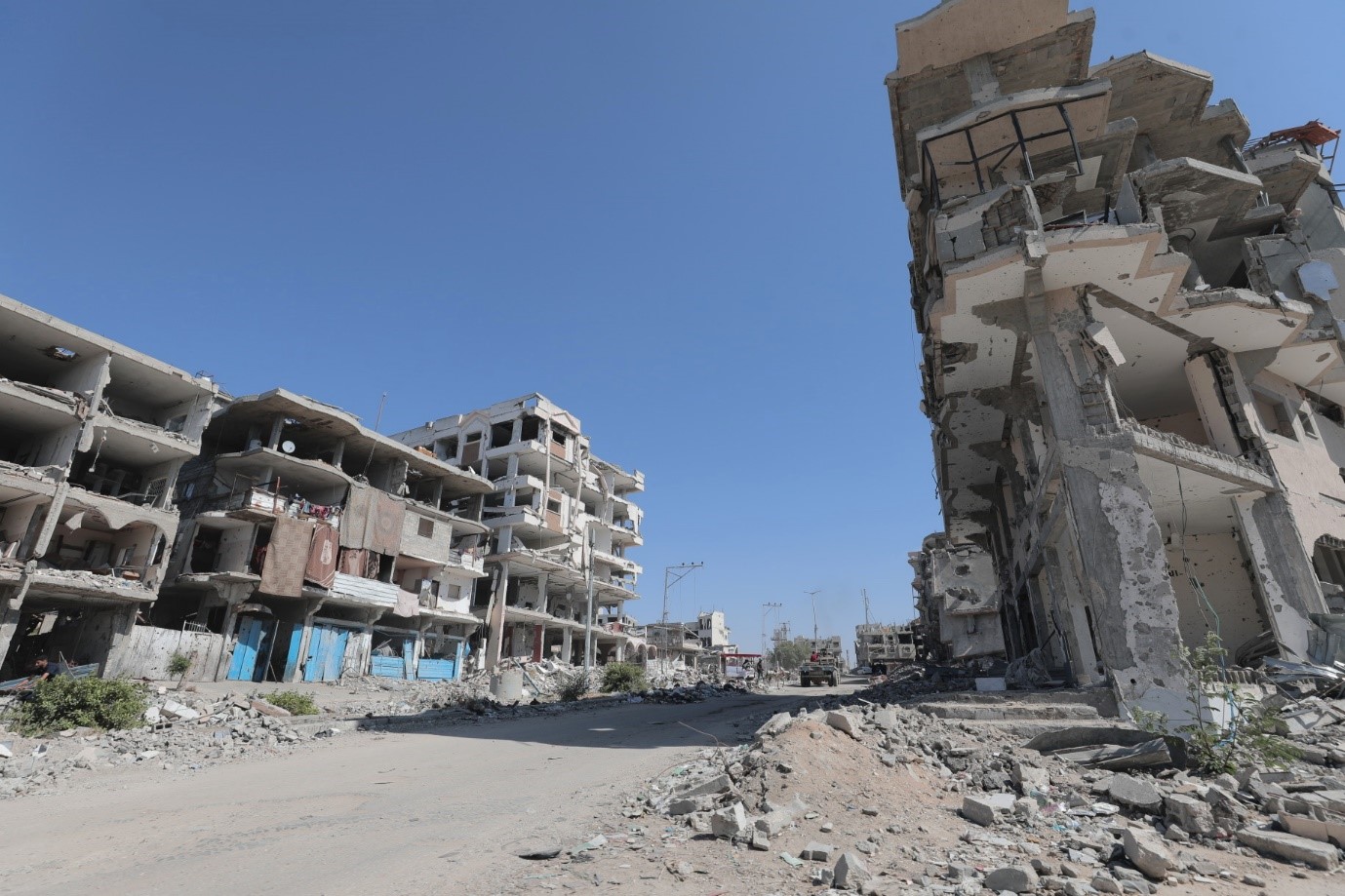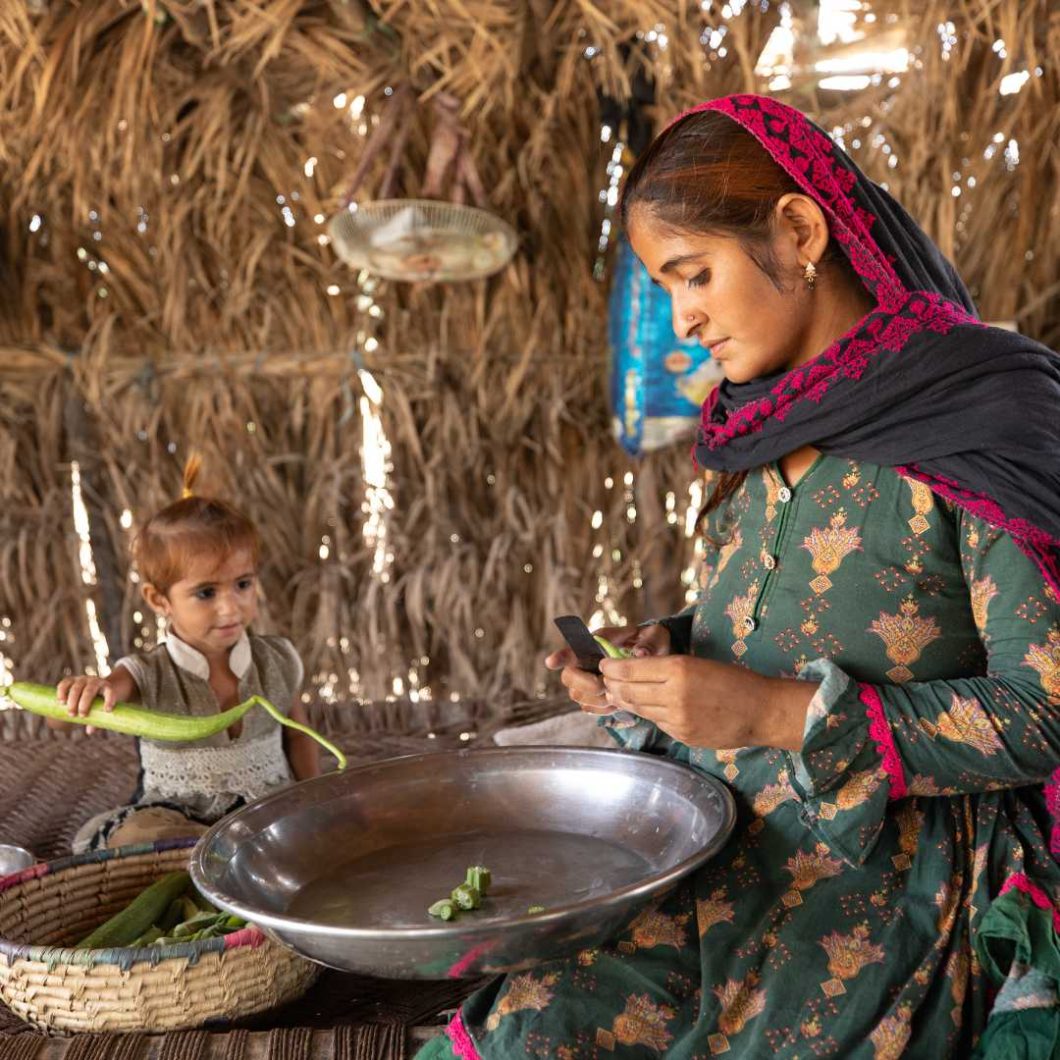My name is Aisha*. I am 27 years old. On October 7, 2023, my life changed forever. That morning, as the first bombs fell on my city in Gaza, I discovered that I was pregnant with my first baby.
“Joy and fear intertwined in my heart, and every heartbeat since then has been marked by uncertainty and hope.”
In the first days of the conflict, the chaos was absolute: explosions, death, airstrikes levelling cafes, houses, schools, and a mass exodus of people seeking an impossible refuge.
Forced to flee
My family and I were forced to leave our home in Gaza City, taking only the clothes on our backs. We headed south to Rafah, where we found temporary shelter in an overcrowded school. We were living in conditions unfit for life, with no toilets and no place for privacy.
The first few months of pregnancy were spent amidst the deafening noise of bombs and the constant fear of losing my baby. Every day was a struggle for normalcy in the midst of devastation.
Freezing nights with no supplies
We had no clean drinking water and almost no one had access to it. Sometimes, I had to walk long distances to get some water to drink. Tanker trucks would come to deliver drinking water. I had to find a jerry can to fill up and take it home. Everyday items that we used to have in our bathroom – shampoo, soap, toothpaste – had to be supplied.
The winter was very harsh. The nights were freezing. The cold seeped through the cracks in the makeshift walls of the shelter, seeping deep into my bones. My health began to deteriorate and, with it, my hope.
Fortunately, we received blankets and coats to help us endure the frigid nights. The extra food was crucial for me and my future baby, as the whispers of hunger – 28 children died of malnutrition – grew louder with each bomb.
By the time I reached the fourth month of pregnancy, the lack of clean water and soap made it almost impossible to maintain basic hygiene.
“I had already lost everything: family, friends, my home, my dignity. I was hungry, thirsty and weak. I needed to eat well, but it had been months since I had seen a fresh vegetable.”
Everything was destroyed
Falling ill in the midst of such a catastrophe was one of the worst experiences of my life, but the community mobile clinics provided me with nutritional supplements and outpatient care. I tried not to think too much about how many mothers-to-be did not even have the opportunity to access that support.
Every time we thought we found a safe place, the shelling forced us to move again. We barely had enough to eat… we could no longer find food, everything was destroyed.
Gaza became gray and uninhabitable. Only memories remained. I joined one of the long-term nutrition programs designed for pregnant women. It helped keep me stable.
On one of the few nights I found electricity to charge my cell phone, I read on the news that 45% of pregnant women in Gaza were suffering from malnutrition. I wish the world understood what malnutrition is. My once supple skin had thinned, my eyes had shrunk and had bags.
Struggling to stay strong
Every day continued to be a struggle to stay strong, not only for myself, but also for my baby. As evacuation orders descended from the same sky that dropped bombs, we had no choice but to flee once again.
Pushed toward the centre of Gaza, surrounded by millions of displaced families, we fled to Deir al-Balah. The once vibrant city was littered with tents and mountains of garbage protruding from the rubble structures. Communal kitchens guaranteed hot food rations, essential for our survival. But I thought of the day when I could once again prepare my own food.
As I neared the end of my pregnancy, I wondered if there was a safe and clean place to give birth. The health situation in the shelters remained precarious, with hundreds of thousands of cases of scabies, lice and diarrhoea.
Adequate prenatal care was almost non-existent, as most clinics and hospitals were skeletons of their former selves, flattened against the ground. Birthing areas were set up inside the shelters, but I wanted to be attended by my doctor.”
Hoping for a better world
Despite everything, I carry on in the hope that my child will be born into a better world. It is my own strength – along with that of my community – that has enabled our harsh survival.
“My name is Aisha, and while this is my story, it represents that of hundreds of pregnant women in Gaza who, like me, struggle daily for a future for their children.”
* Aisha’s story is based on the testimonies of pregnant and lactating women that we’ve helped in the Occupied Palestinian Territories.
How we’re delivering aid to people in Gaza
We’ve been working in Gaza since 2005, so we were able to begin our response in early October. Since then, our aid workers have reached over 916,000 people. We’ve also reached over 709,000 through water, sanitation, and hygiene (WASH) programmes in Gaza. We’ve helped by:
- distributing hot meals and hygiene kits
- trucking clean water to communities
- connecting people with shelters
- providing solid waste management.
But food in Gaza is running out, and Gaza remains one of the hungriest regions on earth. It’s getting harder and harder to get supplies and services where they’re so desperately needed. There needs to be a permanent ceasefire. Now.
Without it, famine is imminent.



